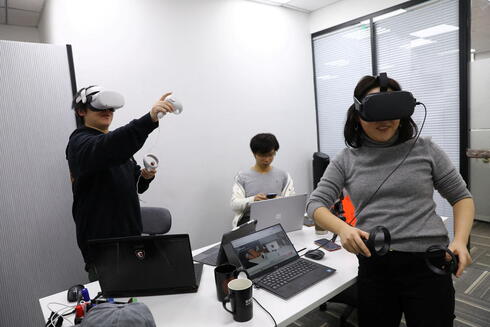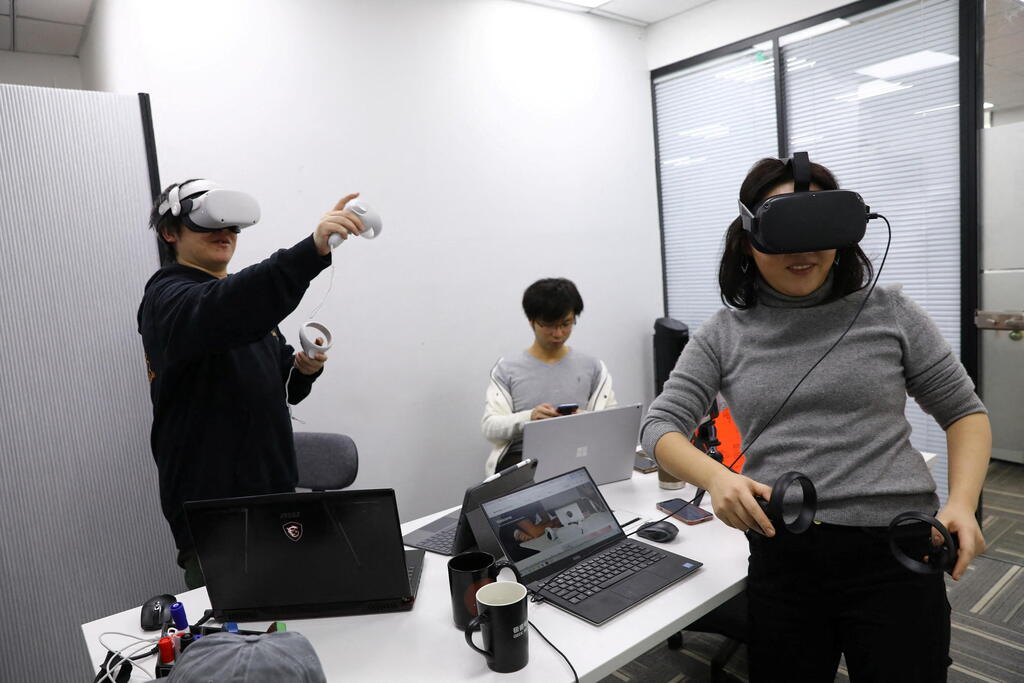
Opinion
Opportunities abound in the metaverse for hangry people of faith
Perhaps the next time the stars all align, and Ramadan, Good Friday and Passover all coincide, members of all three religions can enjoy a shared virtual meal in the metaverse while they simultaneously physically abstain, writes Dov Greenbaum
Celestial bodies will figuratively collide on the afternoon of Friday April 15th resulting in a collective hangriness across the three major monotheistic faiths. Muslim faithful will be around halfway through their daily dawn to dusk fasts of Ramadan. Devout conservative Christians will either be abstaining from various foods, or fasting altogether on Good Friday preceding Easter Monday, and religious Jews will be refraining from both leavened and unleavened bread and associated foods in preparation for the Passover Seder later that evening.
One potential emerging solution to this self-imposed physical hungriness may lie in the metaphysical metaverse, or more specifically, a part thereof that has been recently dubbed by some as the Foodverse. While it may seem counterintuitive to incorporate such a physical activity like eating into the virtual world, there has been growing corporate interest in this very niche corner of the metaverse.
Notably, in spite of any proven consumer demand for these virtual opportunities, Chipotle, the chain of fast-casual restaurants specializing in Mexican fare, reportedly gave away one million dollars’ worth of real burritos to customers who came to their virtual Roblox store in costume this past Halloween. Similarly, Wendy’s, the third largest hamburger fast-food chain in the world recently opened up a virtual restaurant in Meta’s Horizon Worlds to interact with their customers.
While its likely too early to determine exactly what the foodverse will actually encompass, brands are considering numerous opportunities there, including, joint eating events with individuals who are physically distant but virtually together, the development of virtual marketplaces for ordering food to the real world, online reservations for real-world establishments, the testing of promotions inside virtual mockups of physical stores, and the facilitation of crypto payments for real food.
OneRare, a company focused primarily on food in the metaverse is looking to further monetize this intersection between food and online gaming by providing opportunities for online foodies to virtually farm, cook and ultimately create NFTs of their food creations. Those NFTs may eventually be tradable for their real-life counterparts. Already NFTs are being used to purchase, authenticate and trade wine.
Consider other possibilities: Similar to restaurants that try to recreate the experience of eating while blind, consumers could purchase unknown foods from ghost kitchens and consume them while logged into the metaverse, where the nature of the food is revealed. Additionally, entrepreneurs looking to get into the restaurant business can build their storefronts in the metaverse where they can develop their brand’s entire look and feel cheaply, and then supply the actual food to consumers in real life through cloud kitchens.
Eventually technology might develop to a point where real food can be spiced up in the metaverse through digitally simulating known and novel smells and perhaps even taste when the consumer eats while logged into the metaverse.
Of course, there are many real legal concerns as the law struggles to keep up with innovation. This current legal uncertainty of the metaverse may mean that for now, unaffiliated third parties might be able to cybersquat on famous restaurant trademarks in the metaverse, trading on the famousness of various food brands. Perhaps in consideration of these concerns, McDonald’s reportedly filed at least ten trademark applications for metaverse related applications.
Additionally, with corporate terms of service (TOS) ruling much of the metaverse, companies like McDonald’s are also looking to protect their valuable brands according to rules set by the TOSs, even as the actual law remains unclear.
Geographical indications (GI) may present another legal uncertainty. Simplistically, GI refers to legal restrictions that allow only those food products genuinely originating in a specified geographic location to use the protected appellation. Famous GIs include champagne, which when produced outside of the Champagne region of France, is usually referred to as bubbly wine, the eponymous Parmagiano Reggiano and Darjeeling tea, and Kalamata olives from Greece.
For GIs the overall reputation of the associated region as well as the qualities and characteristics of their product are associated with the place of origin, creating a legally protected link between the product and its geographic source. Reportedly, this protection in the European Union alone is valued at nearly 75 billion Euros. As such, GIs are often vigorously protected so as to not become generic and lose their distinctive protections.
Legally, it is unclear if one can sell digital versions and NFTs of GI protected foodstuffs. Or perhaps, eventually more legally interesting, can a novel digital food product gain GI protection that ties it to the metaverse?
Getting back to the hangry people of faith, the current state of technology is clearly far from allowing for digital consumption. But, broad corporate interest in this area suggests that this is more than simply FOMO. Perhaps the next time the stars all align, the technology will actually be there, and members of all three religions can enjoy a shared virtual meal in the metaverse while they simultaneously physically abstain.
Prof. Dov Greenbaum is the director of the Zvi Meitar Institute for Legal Implications of Emerging Technologies at the Harry Radzyner Law School, at Reichman University.















